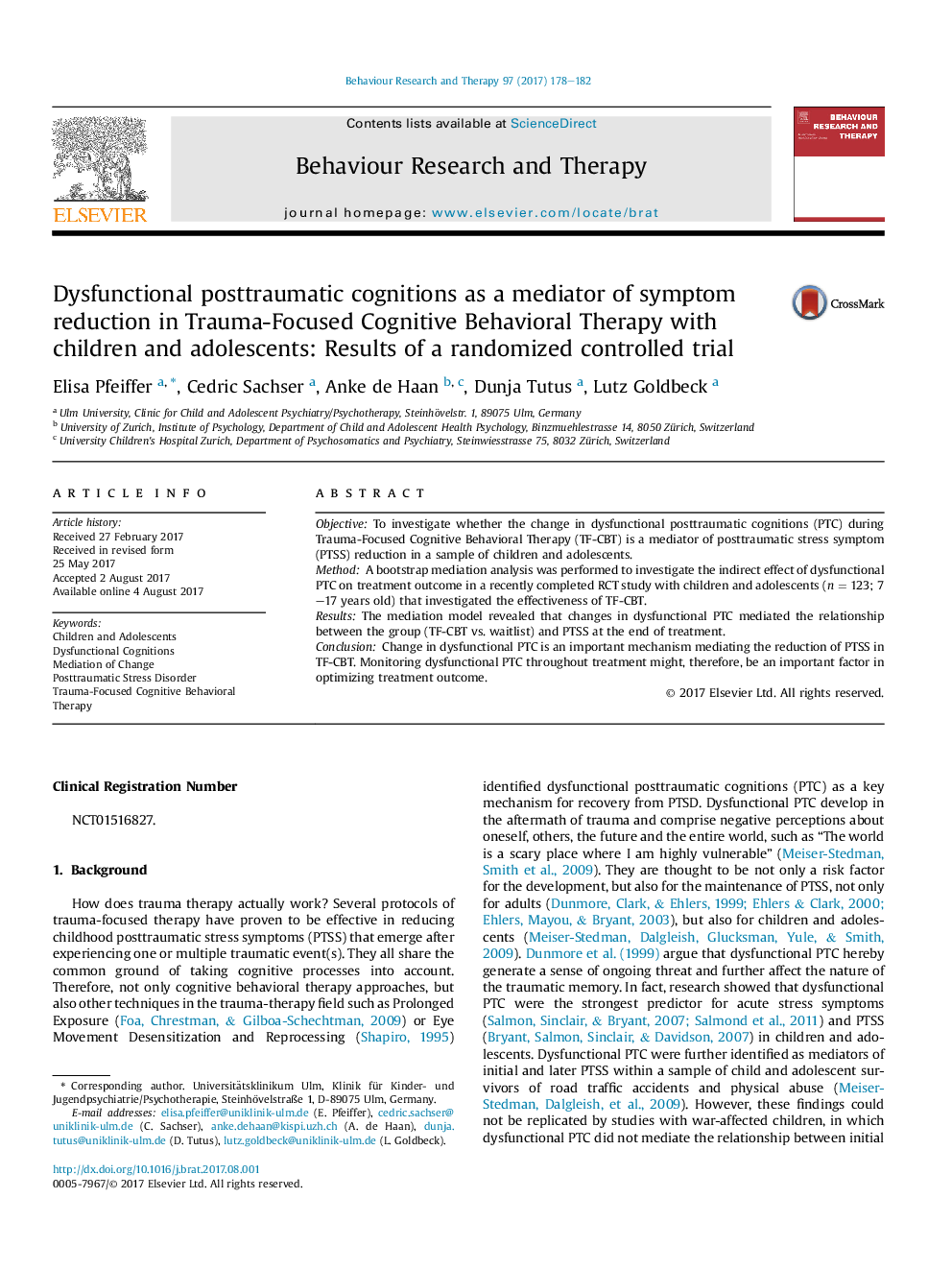| Article ID | Journal | Published Year | Pages | File Type |
|---|---|---|---|---|
| 5038177 | Behaviour Research and Therapy | 2017 | 5 Pages |
â¢A change mechanism in trauma-focused treatment for youth is proposed.â¢Change in dysfunctional cognitions mediates PTSD symptom reduction in TF-CBT.â¢Addressing dysfunctional cognitions is an important mechanism in PTSD treatment.
ObjectiveTo investigate whether the change in dysfunctional posttraumatic cognitions (PTC) during Trauma-Focused Cognitive Behavioral Therapy (TF-CBT) is a mediator of posttraumatic stress symptom (PTSS) reduction in a sample of children and adolescents.MethodA bootstrap mediation analysis was performed to investigate the indirect effect of dysfunctional PTC on treatment outcome in a recently completed RCT study with children and adolescents (n = 123; 7-17 years old) that investigated the effectiveness of TF-CBT.ResultsThe mediation model revealed that changes in dysfunctional PTC mediated the relationship between the group (TF-CBT vs. waitlist) and PTSS at the end of treatment.ConclusionChange in dysfunctional PTC is an important mechanism mediating the reduction of PTSS in TF-CBT. Monitoring dysfunctional PTC throughout treatment might, therefore, be an important factor in optimizing treatment outcome.
